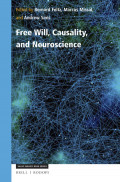
Free will, causality, and neuroscience
Neuroscientists often consider free will to be an illusion. Contrary to this hypothesis, the contributions to this volume show that recent developments in neuroscience can also support the existenc…
- Edisi
- -
- ISBN/ISSN
- 9789004409965
- Deskripsi Fisik
- viii, 184p. : ill.
- Judul Seri
- -
- No. Panggil
- 123.5 FRE f

History without chronology
Although numerous disciplines recognize multiple ways of conceptualizing time, Stefan Tanaka argues that scholars still overwhelmingly operate on chronological and linear Newtonian or classical tim…
- Edisi
- -
- ISBN/ISSN
- 9781643150048
- Deskripsi Fisik
- XIV, 202 p.
- Judul Seri
- -
- No. Panggil
- 115 TAN h
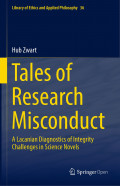
Tales of research misconduct :a Lacanian diagnostics of integrity challenges …
This monograph contributes to the scientific misconduct debate from an oblique perspective, by analysing seven novels devoted to this issue, namely: Arrowsmith by Sinclair Lewis (1925), The affair…
- Edisi
- -
- ISBN/ISSN
- 9783319655543
- Deskripsi Fisik
- ix, 263p. : ill.
- Judul Seri
- -
- No. Panggil
- 174.95 ZWA t
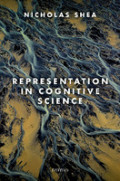
Representation in cognitive science
"Our thoughts are meaningful. We think about things in the outside world; how can that be so? This is one of the deepest questions in contemporary philosophy. Ever since the 'cognitive revolution',…
- Edisi
- -
- ISBN/ISSN
- 9780198812883
- Deskripsi Fisik
- xi, 292 pages : illustrations ; 24 cm
- Judul Seri
- -
- No. Panggil
- 153 SHE r
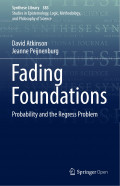
Fading foundations :probability and the regress problem
This book addresses the age-old problem of infinite regresses in epistemology. How can we ever come to know something if knowing requires having good reasons, and reasons can only be good if they a…
- Edisi
- -
- ISBN/ISSN
- 9783319582955
- Deskripsi Fisik
- xi, 238p. : ill.
- Judul Seri
- -
- No. Panggil
- 121 ATK f
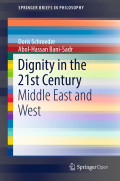
Dignity in the 21st century :Middle East and West
This book offers a unique and insightful analysis of Western and Middle Eastern concepts of dignity and illustrates them with examples of everyday life. Dignity in the 21st Century - Middle East a…
- Edisi
- -
- ISBN/ISSN
- 9783319580203
- Deskripsi Fisik
- xiii, 101p. : ill.
- Judul Seri
- -
- No. Panggil
- 179.9 SCH d
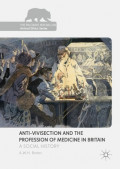
Anti-vivisection and the profession of medicine in Britain :a social history
This book explores the social history of the anti-vivisection movement in Britain from its nineteenth-century beginnings until the 1960s. It discusses the ethical principles that inspired the movem…
- Edisi
- -
- ISBN/ISSN
- 9781137556974
- Deskripsi Fisik
- xxi, 217p. : ill.
- Judul Seri
- -
- No. Panggil
- 179.4 BAT a
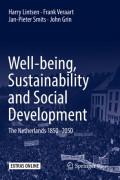
Well-being, Sustainability and Social Development :The Netherlands 1850–2050
This open access book examines more than two centuries of societal development using novel historical and statistical approaches. It applies the well-being monitor developed by Statistics Netherlan…
- Edisi
- -
- ISBN/ISSN
- 9783319766966
- Deskripsi Fisik
- xxxii, 572p. : ill.
- Judul Seri
- -
- No. Panggil
- 113 WEL w
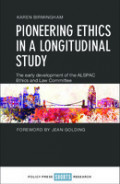
Pioneering ethics in a longitudinal study :the early development of the ALSPA…
"Available Open Access under CC-BY-NC licence The Avon Longitudinal Study of Parents and Children (ALSPAC), also known as Children of the 90s, is a world-leading birth cohort study that uniquely en…
- Edisi
- -
- ISBN/ISSN
- 9781447340423
- Deskripsi Fisik
- XXi, 203 p.
- Judul Seri
- -
- No. Panggil
- 174 BIR p
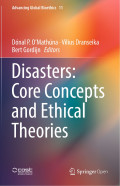
Disasters :core concepts and ethical theories
This Open Access Book is the first to examine disasters from a multidisciplinary perspective. Justification of actions in the face of disasters requires recourse both to conceptual analysis and eth…
- Edisi
- -
- ISBN/ISSN
- 9783319927220
- Deskripsi Fisik
- ix, 244p. : ill.
- Judul Seri
- -
- No. Panggil
- 170 DIS d
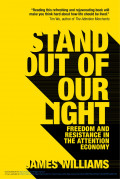
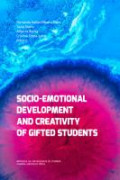
 Karya Umum
Karya Umum  Filsafat
Filsafat  Agama
Agama  Ilmu-ilmu Sosial
Ilmu-ilmu Sosial  Bahasa
Bahasa  Ilmu-ilmu Murni
Ilmu-ilmu Murni  Ilmu-ilmu Terapan
Ilmu-ilmu Terapan  Kesenian, Hiburan, dan Olahraga
Kesenian, Hiburan, dan Olahraga  Kesusastraan
Kesusastraan  Geografi dan Sejarah
Geografi dan Sejarah